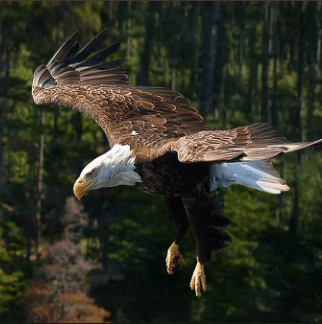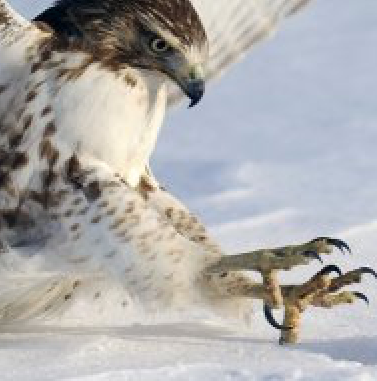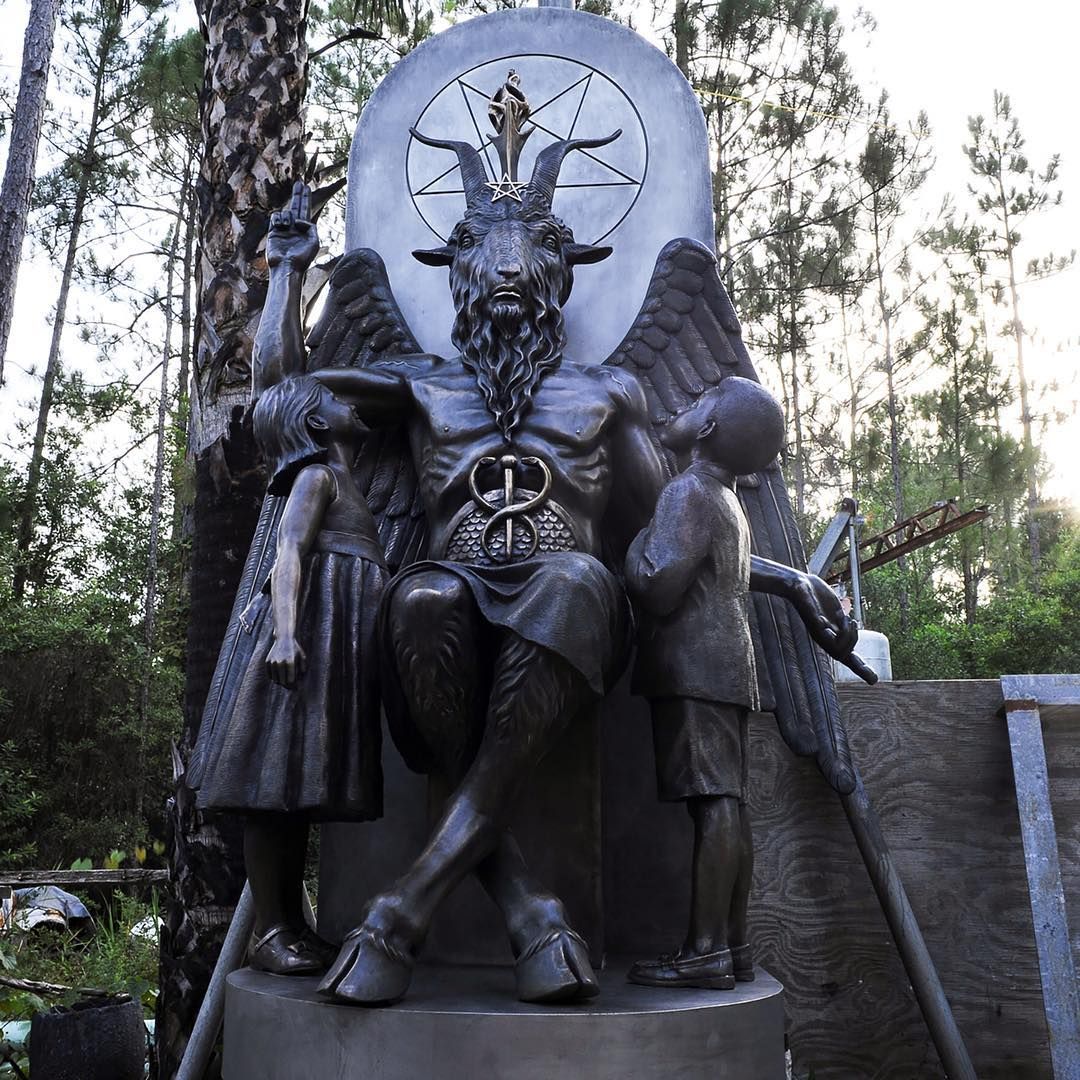- Mar 5, 2024
- 2,299
- 1,127
When The Eagles Gather In Midair: A Teaching On The Rapture, Part 3

Now let's take a look at the Old Testament passage Jesus was actually quoting from when He used the unique phrase, "For where the body is, there will the eagles be gathered." It is found in Job Chapter 39, which reads as follows:
27 Does the eagle mount up at Your command, and the vulture remain sitting over his nest, 28 on a crag of a rock, and in a secret place? 29 Thence he seeks food, his eyes observe from far. 30 His young ones roll themselves in blood, and wherever the carcasses may be, immediately they are found. (Job 39:27-30 LXX)
Like most other times in the New Testament, Jesus was quoting from the Septuagint here rather than the Masoretic, for it speaks of birds in the plural rather than the singular. But what birds? A comparison was being drawn here between two species, the eagle and the vulture. Both were represented in the passage, for γύψ meant "vulture" and αετός meant "eagle." But what was the comparison? Eagles mounted up and rose into the sky whereas vultures descended to earth. Both gathered to feed, but the issue was where, and for vultures the answer was on the ground, where they "rolled in blood." The eagle, however, feeds in the air.
If you google, "Do eagles mostly eat carrion (i.e. dead animals)?," the AI will reply with, "No, eagles do not mostly eat carrion; while they are opportunistic scavengers and will readily consume dead animals, their primary food source is live prey, especially fish for Bald Eagles, and they also hunt birds, small mammals, and reptiles."
But if you ask the same question regarding vultures, you will get the opposite. "Yes, vultures are primarily scavengers that mostly feed on carrion (dead animals), playing a vital role in ecosystems by consuming decaying carcasses and helping to prevent the spread of diseases. While they prefer freshly dead animals, their strong stomach acids can neutralize dangerous bacteria and toxins, making them uniquely adapted to this food source. Though some species, like the Black Vulture, may occasionally kill very weak or sick animals, Turkey Vultures are almost exclusively carrion eaters and do not hunt living prey."
How does this relate? Some try to argue that Jesus was talking about vultures here, and comparing them to the wicked who will be gathered up by the angels of God and "taken" off to their judgement. But there are problems with that interpretation:
1. Why did Jesus use the word for eagles, not for vultures? Jesus was paraphrasing this passage from the Septuagint, so He was familiar with it, and yet He deliberately chose the word for eagle, not for vulture. This singular point complicates nearly every interpretation that would presuppose Jesus was talking about vultures in the phrase, for if that's what He meant then He didn't use the word for it. In fact, the distinction between the two species was made quite often in the Old Testament and not just this once, so it in effect makes Jesus ignorant of the word of God, something most find intolerable (For other uses of the Greek word for vulture, see also Leviticus 11:13, Deuteronomy 14:11, Job 6:7, Job 15:23, and Job 28:7, and for other Greek uses of the word for eagle, see Exodus 19:4, Deuteronomy 32:11, Isaiah 40:31, Leviticus 11:13 and Habakkuk 1:8)
2. If the wicked who are taken away to judgment will be somehow similar to vultures, then in what way? And what “dead carcass" will they feed upon? As stated, if the righteous are depicted as eagles who spiritually feed upon Christ then the analogy makes sense theologically. Jesus said before His death that those who did not eat His body and blood would not have eternal life. But what "body" will they be eating if they are sinners being taken off to endure the judgment of God?
3. Where exactly will they be “taken” to commit this act, and how will it be a fitting punishment? The only answer seems to be that they will be taken away to a place where they will be forced to eat carrion in violation of Jewish law. Cleanliness laws stated that the Jews were not to touch, taste or handle anything that's dead, for it was considered unclean. But if this is the interpretation, why not just let the armies of the Antichrist force them to do it themselves? Why aid and abet the enemy, and help the Antichrist by playing an active roll in forcing the Jews to sin?
4. Lastly, why would the Lord care about the eagles “mounting up” by commanding them to? In Job, God specifically asked him, "Can you command the eagle to mount up"? inferring that the Lord could but that Job could not. But why would the Lord want to, unless He was actually making reference to something far more theologically significant?
16 For the Lord himself will descend from heaven with a cry of command, with the voice of an archangel, and with the sound of the trumpet of God. And the dead in Christ will rise first. 17 Then we who are alive, who are left, will be caught up together with them in the clouds to meet the Lord in the air, and so we will always be with the Lord. (1 Thessalonians 4:16-17)
In Part 4, I will cite modern visions which again make the distinction between eagles and other birds like vultures, setting them apart as birds who do NOT eat dead flesh. In likening them to believers, the teaching is that the Spirit-filled eat only fresh "food," i.e. spiritual revelation that comes directly "from the hand of God" rather than lifeless teachings that are passed along by the traditions of men.

Now let's take a look at the Old Testament passage Jesus was actually quoting from when He used the unique phrase, "For where the body is, there will the eagles be gathered." It is found in Job Chapter 39, which reads as follows:
27 Does the eagle mount up at Your command, and the vulture remain sitting over his nest, 28 on a crag of a rock, and in a secret place? 29 Thence he seeks food, his eyes observe from far. 30 His young ones roll themselves in blood, and wherever the carcasses may be, immediately they are found. (Job 39:27-30 LXX)
Like most other times in the New Testament, Jesus was quoting from the Septuagint here rather than the Masoretic, for it speaks of birds in the plural rather than the singular. But what birds? A comparison was being drawn here between two species, the eagle and the vulture. Both were represented in the passage, for γύψ meant "vulture" and αετός meant "eagle." But what was the comparison? Eagles mounted up and rose into the sky whereas vultures descended to earth. Both gathered to feed, but the issue was where, and for vultures the answer was on the ground, where they "rolled in blood." The eagle, however, feeds in the air.
If you google, "Do eagles mostly eat carrion (i.e. dead animals)?," the AI will reply with, "No, eagles do not mostly eat carrion; while they are opportunistic scavengers and will readily consume dead animals, their primary food source is live prey, especially fish for Bald Eagles, and they also hunt birds, small mammals, and reptiles."
But if you ask the same question regarding vultures, you will get the opposite. "Yes, vultures are primarily scavengers that mostly feed on carrion (dead animals), playing a vital role in ecosystems by consuming decaying carcasses and helping to prevent the spread of diseases. While they prefer freshly dead animals, their strong stomach acids can neutralize dangerous bacteria and toxins, making them uniquely adapted to this food source. Though some species, like the Black Vulture, may occasionally kill very weak or sick animals, Turkey Vultures are almost exclusively carrion eaters and do not hunt living prey."
How does this relate? Some try to argue that Jesus was talking about vultures here, and comparing them to the wicked who will be gathered up by the angels of God and "taken" off to their judgement. But there are problems with that interpretation:
1. Why did Jesus use the word for eagles, not for vultures? Jesus was paraphrasing this passage from the Septuagint, so He was familiar with it, and yet He deliberately chose the word for eagle, not for vulture. This singular point complicates nearly every interpretation that would presuppose Jesus was talking about vultures in the phrase, for if that's what He meant then He didn't use the word for it. In fact, the distinction between the two species was made quite often in the Old Testament and not just this once, so it in effect makes Jesus ignorant of the word of God, something most find intolerable (For other uses of the Greek word for vulture, see also Leviticus 11:13, Deuteronomy 14:11, Job 6:7, Job 15:23, and Job 28:7, and for other Greek uses of the word for eagle, see Exodus 19:4, Deuteronomy 32:11, Isaiah 40:31, Leviticus 11:13 and Habakkuk 1:8)
2. If the wicked who are taken away to judgment will be somehow similar to vultures, then in what way? And what “dead carcass" will they feed upon? As stated, if the righteous are depicted as eagles who spiritually feed upon Christ then the analogy makes sense theologically. Jesus said before His death that those who did not eat His body and blood would not have eternal life. But what "body" will they be eating if they are sinners being taken off to endure the judgment of God?
3. Where exactly will they be “taken” to commit this act, and how will it be a fitting punishment? The only answer seems to be that they will be taken away to a place where they will be forced to eat carrion in violation of Jewish law. Cleanliness laws stated that the Jews were not to touch, taste or handle anything that's dead, for it was considered unclean. But if this is the interpretation, why not just let the armies of the Antichrist force them to do it themselves? Why aid and abet the enemy, and help the Antichrist by playing an active roll in forcing the Jews to sin?
4. Lastly, why would the Lord care about the eagles “mounting up” by commanding them to? In Job, God specifically asked him, "Can you command the eagle to mount up"? inferring that the Lord could but that Job could not. But why would the Lord want to, unless He was actually making reference to something far more theologically significant?
16 For the Lord himself will descend from heaven with a cry of command, with the voice of an archangel, and with the sound of the trumpet of God. And the dead in Christ will rise first. 17 Then we who are alive, who are left, will be caught up together with them in the clouds to meet the Lord in the air, and so we will always be with the Lord. (1 Thessalonians 4:16-17)
In Part 4, I will cite modern visions which again make the distinction between eagles and other birds like vultures, setting them apart as birds who do NOT eat dead flesh. In likening them to believers, the teaching is that the Spirit-filled eat only fresh "food," i.e. spiritual revelation that comes directly "from the hand of God" rather than lifeless teachings that are passed along by the traditions of men.









